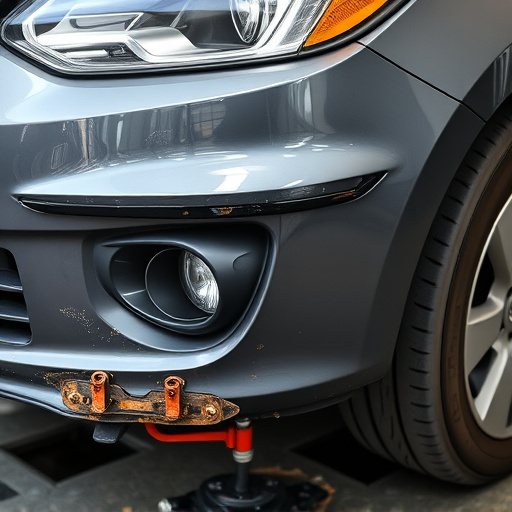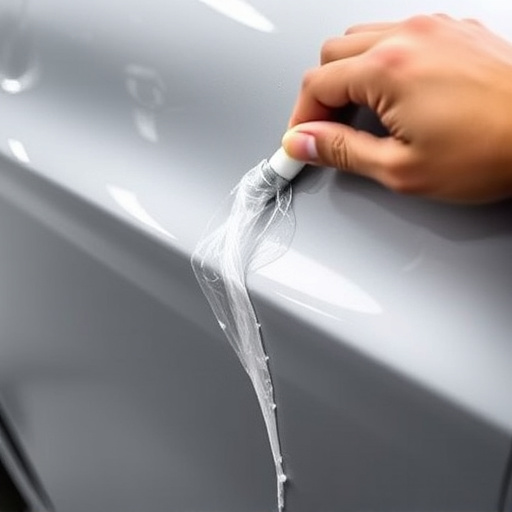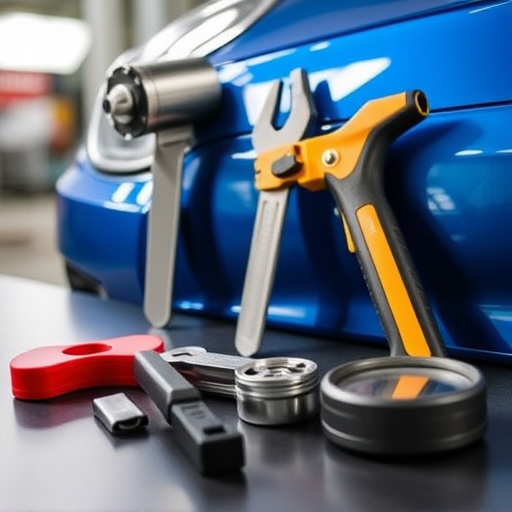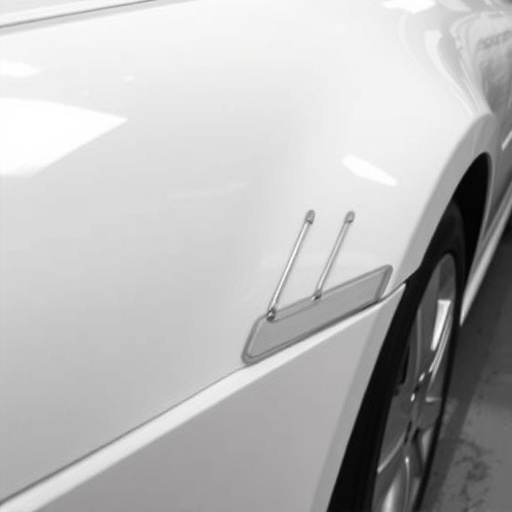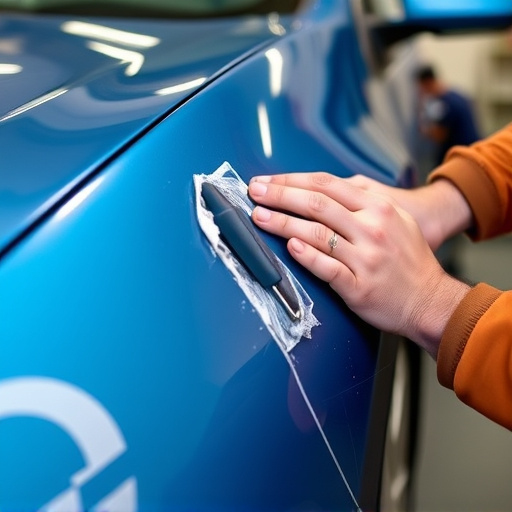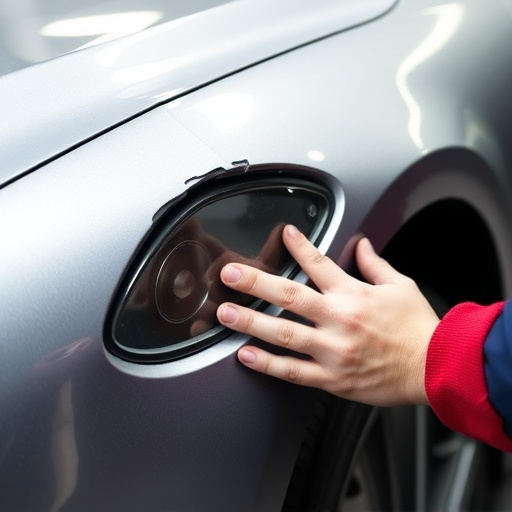The automotive industry's plastic panel repair replacement (PPR) shifts from manual to tech-driven solutions. Laser cutting and 3D printing enhance speed, accuracy, and sustainability, reducing labor costs and environmental impact. Future PPR advancements include robotic systems with sensors for faster detection of dents, specialized adhesives for quality replacements, and eco-friendly recycling methods, aiming for more efficient, cost-effective, and environmentally friendly repairs.
The future of automotive repair is here, with innovative technologies transforming traditional methods. In particular, plastic panel repair and replacement are evolving rapidly. This article delves into the current state of these processes, exploring emerging technologies that streamline repairs and enhance efficiency. We also scrutinize the environmental impact, highlighting sustainable solutions that promise a greener future for the industry while addressing the growing demand for advanced plastic panel repair techniques.
- Current State of Plastic Panel Repair Methods
- Emerging Technologies for Efficient Repairs
- Environmental Impact and Sustainable Solutions
Current State of Plastic Panel Repair Methods
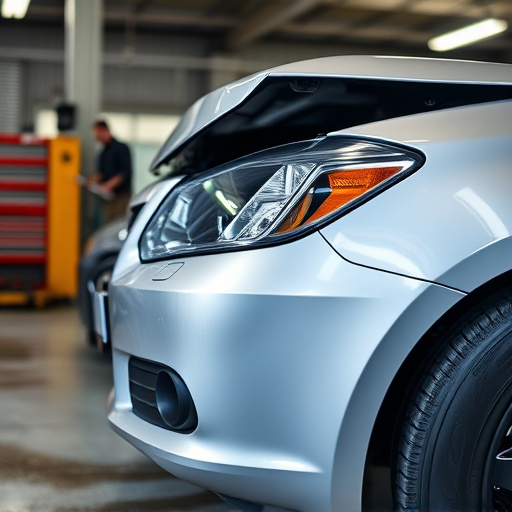
The current landscape of plastic panel repair within the automotive industry is characterized by a mix of traditional methods and emerging technologies. For years, car bodywork repairs have primarily involved manual labor, where skilled technicians use specialized tools to cut, mold, and reshape damaged panels. This process often requires intricate precision and can be time-consuming, especially for complex vehicle repair cases.
However, advancements in plastic panel repair replacement technologies are transforming the way we approach car bodywork. New techniques such as laser cutting and 3D printing offer faster, more precise alternatives, reducing the need for extensive manual labor. These innovations not only enhance efficiency but also open doors to more cost-effective and environmentally friendly vehicle repair solutions, revolutionizing the traditional automotive repair sector.
Emerging Technologies for Efficient Repairs
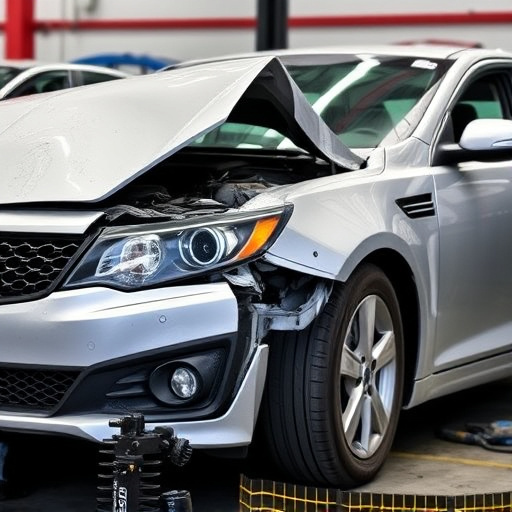
The future of plastic panel repair replacement technologies is looking brighter with the emergence of innovative solutions designed to streamline and optimize the process. These new methods are set to transform the way vehicle body shops handle car dent removal and plastic panel repairs, making them more efficient and cost-effective.
One promising technology involves advanced robotic systems equipped with precise sensors that can accurately detect even minor dents or damage on a vehicle’s surface. This automation reduces human error and significantly speeds up the repair process. Another game-changer is the development of specialized adhesives and bonding agents tailored for plastic materials, enabling stronger and more durable repairs. These emerging technologies not only enhance the quality of plastic panel replacement but also contribute to a more sustainable automotive repair ecosystem by reducing waste and minimizing the need for extensive bodywork.
Environmental Impact and Sustainable Solutions

The environmental impact of plastic panel repair and replacement technologies is a growing concern in the automotive industry. Traditional methods often involve disposing of damaged or outdated panels, contributing to the ever-growing waste problem. However, as awareness about sustainability increases, so does the demand for eco-friendly solutions. Innovative companies are now focusing on recycling and repurposing materials, reducing the need for new plastic production, which has a significant carbon footprint. By adopting these sustainable practices, the automotive sector can take a substantial step towards minimizing its ecological footprint.
One promising approach is using advanced technologies like 3D printing to create custom plastic panels. This method allows for precise repairs and reduces waste as it only uses the required material. For instance, in a Mercedes Benz collision repair scenario, 3D printing could be utilized to replace specific damaged parts, ensuring both structural integrity and environmental friendliness. Such innovative techniques not only support car dent removal but also offer long-lasting solutions, promoting the longevity of vehicles and a cleaner planet.
The future of plastic panel repair and replacement technologies looks promising, with emerging innovations offering faster, more efficient, and environmentally friendly solutions. As the demand for sustainable practices grows, these advancements in plastic panel repair are set to revolutionize the industry. By embracing new techniques and materials, we can significantly reduce waste and minimize the environmental impact associated with traditional methods. With ongoing research and development, the automotive and manufacturing sectors are poised to benefit from more accessible, cost-effective, and eco-conscious plastic panel repair replacement options.

